Contribution to the society
Our key community development programmes are aimed at the residents of three provinces (Gdańsk, Katowice and Rzeszów), where our production plants, warehousing facilities and other installations are located. It is also where several subsidiaries of the LOTOS Group operate, including the Grupa LOTOS refinery in Gdańsk and the biggest facilities in the south of Poland belonging to LOTOS Terminale in Czechowice-Dziedzice and LOTOS Infrastruktura in Jasło.
The key objective of the LOTOS Group's CSR Strategy until 2015 with respect to integration with local communities, is to ensure favourable attitudes among local communities and strengthen the company’s image as a socially committed business, by undertaking initiatives designed to provide lasting solutions to social and environmental issues.
The project which is directed at counteracting and overcoming problems in the Pomerania region and to which we contribute most is the Development Initiation Forum, inaugurated in Gdańsk in 2012. It is an initiative born of the experiences and needs of the representatives of three sectors: local government, business and NGOs. The project deals with the effective social and economic development of the region, based on the implementation of inter-sectoral projects.
The idea of the Development Initiation Forum:
- Learning the practicalities of inter-sectoral cooperation;
- Providing opportunities for the exchange of good practices;
- Using tried and tested cooperation and activation strategies;
- Providing opportunities for building informal contacts and actively searching for partners to cooperate with.
The most important results achieved under this initiative in 2013 include:
- Creating more than a dozen partnerships gathering around 20 entities, represented by the very active Programme Council, in which representatives of NGOs, business and public institutions are associated;
- Organizing a conference in Gdańsk dedicated to inter-sectoral cooperation, which was attended by 300 delegates representing around 80 organizations, companies and institutions;
- Conducting the first edition of inter-sectoral cooperation workshops in the County of Bielsko-Biała;
- Promoting the activities of the Forum at two conferences in the CSR Academy. Responsible Business Development series, addressed to SMEs in the Pomerania and Olsztyn region.
The contribution of Grupa LOTOS into the Forum’s work is not only financial but we also share our experiences in the areas of infrastructure, educational, environmental and cultural initiatives, which have supported the development of the Pomerania region for years. The launch of the Grant Fund – Development Initiation Forum, whose aim is to support the completion of several developmental projects, is planned for 2014.
{GRI SO1}
In the LOTOS Group, we place great emphasis on maintaining good relations with groups of stakeholders, which for any reason whatsoever are or can be affected by our operational activities.
For all infrastructure investments, before obtaining the building permit, we perform environmental impact assessment reports. Polish law requires for such reports to be consulted with the community – and their results are made publicly available so that all interested parties have access to the prepared documentation and can, in case of doubt, voice their objection. For investments potentially increasing our impact on the environment, we always conduct consultations with the local community.
Public consultations
In 2013, we conducted public consultations in connection with the planned construction of the complex of heavy-fraction oil distillates deep-processing installations at Grupa LOTOS refinery in Gdańsk. As part of them, a number of meetings with authorities, representatives of the industry and potentially most concerned local residents were organized, during which we tried to give as much information as possible about the planned investment and respond to all queries. The consultations were accompanied by an information campaign in the press, on the radio and TV. The participants were interested in the investment’s impact on the refinery’s surroundings, and its potential benefits. In the first case, the only environmental factor that may change is the level of noise. However, the environmental impact assessment report shows that both daytime and nighttime noise limits will not be exceeded. What interested the participants the most were the employment possibilities both at the construction stage and after the new installations are launched. It was stated that at the construction stage alone will require Grupa LOTOS to employ further 1,000 – 1,500 workers and for the purposes of the planned installations we will also be looking for operators.
In 2013, LOTOS Petrobaltic performed environmental impact assessments of its exploration, appraisal and production activities from oil and natural gas deposits in the areas of its licences in the Polish sea territory.
Like Grupa LOTOS, LOTOS Group’s companies from South Poland – LOTOS Biopaliwa, LOTOS Terminale and LOTOS Infrastruktura – continued their active cooperation with local government institutions in the area of preventing and reacting to failures also in 2013. As facilities of above-regular and high risk of failures, the companies passed on to mayors of towns in which they operate information on safety measures taken and emergency response plans, and their representatives attended Town Hall meetings.
{GRI SO9}
We realize that the operational activities, particularly of the Grupa LOTOS refinery, the LOTOS Kolej manoeuvre area and the production facilities of LOTOS Oil, LOTOS Asfalt, LOTOS Biopaliwa and RCEkoenergia, does have an impact on the life quality of the local communities. However, it should be noted that these activities have no negative environmental impact on their neighbours – all companies abide by the emission limit values provided for in environmental permits.
Also, oil extraction carried out in Lithuania by LOTOS Geonafta does not have any potential or real environmental impact on the local environment. The company has pursued its activity in the same locations for years so the environmental impact of both current and planned activities in these locations is very well-researched. Also, the quality of all environmental media – air, surface and underground water, and soil – is monitored at all locations of oil extraction and the monitoring results are regularly sent to supervisory bodies, where all representatives of the local authorities and communication have easy access to them.
We have not received any information suggesting excessive use of natural resources in the vicinity of our facilities nor any possible threats to the local communities associated with such use.
{GRI OG13}
We place great emphasis on the identification of potential safety threats to people and to the natural environment. To this aim, our employees responsible for process control attend special training sessions and we implement best engineering practices by including them in their job and process manuals. All these efforts attest to the high process safety culture in the organization. In 2013, only two companies reported occurrences of process safety threats.
At LOTOS Asfalt, there were two incidents posing a threat to health, which highlighted to us the areas needing improvement. The identified threats were examined by the Accident Committee, which recommended post-failure preventive and improvement measures. At LOTOS Oil, one Tier 1 process safety threat was recorded, which resulted in one employee getting injured. Apart from than, 15 incidents which can be classified as Tier 2 process safety threats were recorded at LOTOS Oil. Their identification made it possible to take early safety measures and prevent their transformation into Tier 1 threats. To maintain an appropriate level of process safety, LOTOS Oil develops inspection timetables for key equipment, supporting prevention of accidental emission of substances, including non-toxic and non-flammable materials. Also, the company keeps records of events which might potentially affect process safety. In 2013, there were several incidents which can be classified as safety threats at LOTOS Paliwa. 13 incidents involved fires in customers’ vehicles at service stations, in one case a customer’s car damaged an LPG pump, and in 3 cases there were fires in the facilities neighbouring with a service station or in a service station itself. In each instance, the employees responded properly, following the applicable procedures. The situation was assessed, the emergency was reported to relevant persons, the premises of the station were closed and secured, and, where necessary, fire-fighting measures were taken and the relevant emergency services were alerted in order to remedy the threat and secure the premises.
Managers of the affected stations analyze each dangerous incident and report it to LOTOS Paliwa’s OSH team, where it is again analyzed for the possibility of a recurrence and the formulation of preventative measures.
{GRI EC8}
For years, we have supported initiatives aimed at improving the life quality in our neighbouring communities, and which are local to our employees. Education and healthcare systems are well developed in our environment; however, we are particularly involved in initiatives that support our social partners in the area of access to appropriate professional equipment. Selection of such projects is usually preceded by consultations with the local authorities or social partners with the relevant competencies.
In 2013, we cooperated with NGOs and social organizations with regard to purchasing advertising materials; money raised by selling advertising gadgets was used to support the statutory activities of these organizations.
We supported a number of initiatives which had an impact on the infrastructural development of our local communities, bringing positive effects to many spheres of their life. It is worth emphasizing that in June 2013, the General Shareholders Meeting of Grupa LOTOS adopted a resolution on distribution of profit for 2012. Under the resolution, part of Grupa LOTOS’ net profit in the amount of PLN 1,500,000 was earmarked for the Company’s special account for financing of Grupa LOTOS’ CSR projects.
Money donated by us in 2013 was invested in medical equipment for public healthcare institutions, necessary equipment related to environmental protection and ecology, investments aimed at the improvement of residents' quality of life and road safety education. These investments were realised pro publico bono.
LOTOS Group’s involvement in initiatives serving the development of its local communities in 2013
| No. | Institution | City/town | Purpose of grant |
|---|---|---|---|
| 1. | Municipality of Gdańsk | Gdańsk | Co-financing of the modernization of a playground. |
| 2. | Social Care Association 'Bank of the Open Hearts' | Gdańsk | Co-financing of the equipment for the playground. |
| 3. | Primary School No. 11 | Gdańsk | Purchase of educational equipment. |
| 4. | ENDOSIGMA Association for Supporting the Gdansk Gastroenterology | Gdańsk | Co-financing of the purchase of medical equipment. |
| 5. | Specialist Hospital in Jasło | Jasło | Purchase of medical equipment. |
| 6. | Pomorskie Centrum Chorób Zakaźnych i Gruźlicy (Pomeranian Infectious Diseases and TB Centre) | Gdańsk | Purchase of medical equipment. |
| 7. | Uniwersyteckie Centrum Kliniczne (University Clinical Centre) | Gdańsk | Purchase of medical equipment. |
| 8. | Stowarzyszenie COR Kardiochirurgia (COR Cardiac Surgery Association) | Gdańsk | Purchase of medical equipment. |
| 9. | Fundacja z Pompą – Pomóż Dzieciom z Białaczką (Help Children with Leukemia Foundation) | Gdańsk | Purchase of medical equipment. |
| 10. | Pomorskie Centrum Traumatologii im. M. Kopernika (Copernicus Pomeranian Centre of Traumatology) | Gdańsk | Purchase of medical equipment. |
| 11. | Stowarzyszenie Na Rzecz Osób z Upośledzeniem Umysłowym RAZEM ('Together' Association for Persons with Mental Disability) | Bielsko-Biała | Co-financing of the construction of the infrastructure for the disabled. |
| 12. | Jesteśmy Razem Stowarzyszenie Przyjaciół Szkoły ('We are Together' Association of Friends of School) | Gdańsk | Purchase of the playground equipment. |
| 13. | Poszukiwawcze Ochotnicze Pogotowie Ratunkowe (Volunteer Search and Rescue) | Gdynia | Purchase of rescue and training equipment. |
| 14. | Zespół Szkół Ogólnokształcących nr 3 (Comprehensive Secondary School Complex No. 3) | Gdynia | Co-financing of the conversion of a classroom into a chemical laboratory. |
| 15. | Szkoła Podstawowa im. Obrońców Ziem Polskich (Defenders of the Polish Lands Primary School) | Cedry Wielkie | Purchase of educational equipment. |
| 16. | Zespół Szkół Przemysłu Spożywczego i Chemicznego im. M. Skłodowskiej-Curie (Maria Skłodowska-Curie Food and Chemical Industry Schools Complex) | Gdańsk | Purchase of educational equipment. |
| 17. | Primary School No. 61 | Gdańsk | Purchase of educational equipment.. |
| 18. | Stowarzyszenie Przyjazne Pomorze (Friendly Pomerania Association) | Gdańsk | Co-financing of the renovation of the facilities and purchase of equipment. |
| 19. | Fundacja Agencja Regionalnego Monitoringu Aglomeracji Gdańskiej (Agency of Regional Air Quality Monitoring of Gdańsk Agglomeration) | Gdańsk | Co-financing of the modernization and replacement of the air quality monitoring network. |
| 20. | Stacja Ornitologiczna Muzeum i Instytut Zoologii PAN (Ornithological Station at the Museum and Institute of Zoology of the Polish Academy of Science) | Gdańsk | Co-financing of statutory activities, including the purchase of teaching materials. |
| 21. | Fundacja Rozwoju Uniwersytetu Gdańskiego (Foundation for the Development of Gdańsk University) | Gdańsk | Co-financing of statutory activities connected with research objectives. |
| 22. | Grupa Badawcza Ptaków Wodnych KULING (Kuling Waterbird Research Group) | Gdańsk | Co-financing of statutory activities, including the creation of teaching infrastructure in the ‘Mewia Łacha’ Reserve. |
| 23. | Stowarzyszenie Przyjaciół Wyspy Sobieszewskiej (Association of Sobieszewo Island Lovers) | Gdańsk | Co-financing of the purchase of sports and recreational infrastructure. |
Structure of 2013 LOTOS Group’s support in the form of grants, broken down by sphere of life (%)
{GRI SO10, 4.17}
In 2013, we took a number of preventive measures and activities contributing to the development of the local communities living in the vicinity of LOTOS Group facilities. Many of these are long-term programmes that have already been in place for several years. As they fit with the areas of our competence, determined in consultation with our stakeholders, they are indeed likely to improve aspects of life that are important to the communities' members.
Road safety
The low level of traffic safety has been one of the major social problems in Poland for many years. According to preliminary reports of the Polish National Police Headquarters, there were around 35,400 road accidents in 2013, in which almost 3,300 people were killed and roughly 43,500 people were injured – as compared to 2012, these numbers have fallen by a few percentage points but they still illustrate a serious danger to people’s lives and health. It means that despite a gradual improvement of the road safety the situation still remains very bad as compared to other EU members. The road traffic mortality in Poland (the number of fatalities per 1 million residents) is almost twice as high as the EU average. In 2013, 28,000 people lost their lives on EU roads, 13% of which were Polish although Poles make up only 8% of EU residents.
Given the scale of the risk, educational campaigns should be run among the very youngest pupils of primary schools, as it is at this stage that the right attitudes and behaviour are shaped most effectively.
Grupa LOTOS sees its involvement in the enhancement of road traffic safety as a priority. To this end, we established ‘Akademia Bezpieczeństwa LOTOS’ (‘LOTOS Safety Academy’) – a programme dedicated chiefly to educating children and teenagers. Events organized by the LOTOS Safety Academy in 2013 included another iteration of the ‘LOTOS – Bezpieczna droga do szkoły’ (‘LOTOS – Safe Journey to School’) programme, the ‘Uwolnić odblaski’ art competition (‘Free Reflectors - to promote reflective clothing and accessories’) and the ‘W drodze do prawa jazdy’ (‘On the Way to a Driving Licence’) initiative.
1. ‘LOTOS – Safe Journey to School’ is a social education and accident prevention programme run jointly with Polish Police and road traffic safety experts, designed to educate and promote safe road behaviour, thus preventing traffic accidents involving young schoolchildren. The idea behind the programme is to make children conscious and safety-minded road traffic participants. The programme is addressed to primary-school first year pupils, and is designed to draw their attention to safe use of roads by both pedestrians and drivers, including their parents. At the beginning of every school year, the programme offers an opportunity to participate in classes with police officers and road safety instructors to learn about road traffic safety and safe places to play. Participants are presented with road safety reflectors and special road safety educational packages funded by our Company. Major partners in this programme include the Gdańsk Province Police Headquarters, the Bielsko-Biała City Police Headquarters and the Jasło Motor and Road Rescue Club. The programme is run in the areas of selected LOTOS Group subsidiaries, including in the Province of Gdańsk and the municipalities lying within the sphere of influence of LOTOS Terminale and LOTOS Infrastruktura. It was first implemented in Jasło, in 1998.
In the 2013/2014 school year, we distributed a total of 14,000 road safety reflectors and the same number of educational packages to primary school first-year pupils of the Gdańsk Province, and of the Counties of Jasło and Bielsko-Biała. In total, we have distributed 100,000 road safety reflectors and 80,000 educational packages over the course of the last 8 years.
2. The ‘Free Reflectors’ competition was devised for first-grade pupils, particularly those participating in the ‘LOTOS – Safe Journey to School’ programme. Its overall aim is to remind and warn children about road traffic risks and to help them get into the habit of wearing reflective accessories, which reduces the likelihood of accidents. The competition is open to schoolchildren of the Gdańsk Province and the Counties of Bielsko-Biała and Jasło. Its partners make joint efforts to encourage parents, carers and teachers to equip children with reflective accessories. The competition is held in the summer semester and the finale takes place in June, just before the end of the school year and the beginning of the holidays. Each participating school selects and submits up to ten pieces of art by their children. From among all the entries, the three best works are selected in each region. First-place winners are awarded bicycles with safety enhancing accessories. Additionally, the schools of the winners are awarded mini road-sign kits and bicycles with safety enhancing accessories. Second-place winners receive roller blade sets with accessories, while third-place winners receive educational game sets.
In 2013, a total of 712 pieces of art from 124 schools were submitted as part of the ‘Free Reflectors’ competition. First prizes were awarded to the pupils of Dr Leon Heyke Primary School No. 2 in Kościerzyna (Gdańsk Province), the Primary School No. 26 in Bielsko-Biała (County of Bielsko-Biała) and the Community Primary School in Lipnica Dolna, Commune of Brzyska (County of Jasło). Between 2010-2013, a total of more than 2,000 students took part in the contest.
3. The ‘On the Way to a Driving Licence’ project, of which we are a partner, is run in cooperation with the Road Traffic Department of the Gdańsk Province Police Headquarters. It is aimed at promoting the rules of safe behaviour on the road among students of secondary schools, thus preventing accidents involving young drivers. The project focused on meetings with students of selected junior high schools. These meetings involved lectures on the rules of road safety, delivered by a police officer, as well as lectures on first aid and the medical consequences of road accidents, delivered by a medical rescue expert. The theoretical part was followed by a practical one, which was aimed at increasing the participants’ awareness of safe behaviour on the road both as pedestrians and future drivers. The main emphasis was placed on such risks as speeding, reckless driving, and not wearing seat belts.
In 2012-2013, the ‘On the Way to a Driving Licence’ project, was attended by 600 junior high school students in Gdańsk.
4. Grupa LOTOS is also a partner of the ‘On the Road to Safety’ programme run by the Governor of the Gdańsk Province. This initiative is aimed at selecting the best original road safety programmes completed in the Pomerania region in the given school year. The competition participants include local government institutions, central government institutions, NGOs and associations. The prize is the co-funding for the winning projects.
In 2013, two joint first prizes were awarded to the Special Purpose School and Education Centre in Puck and the ‘Safe Region of Słupsk’ Association. The Junior High School in Żukowo was awarded an honorable distinction.
Equal opportunity initiatives and preventing exclusion
Openness to the future is among the key social values of the LOTOS brand, which is why we place a special emphasis on projects promoting young people’s personal development, especially of the children and youth living in the immediate vicinity of our production facilities.
‘Dobry Sąsiad’ (‘Good Neighbour’) Programme
We have developed a dedicated programme for the inhabitants of Grupa LOTOS’ neighbouring areas. Its strategic objective is to ensure equal opportunities, prevent social exclusion, to activate and integrate the local communities and to support the education of the youngest. As part of the programme, we:
- Get involved in the life of local communities by organizing family events, sporting events, co-financing summer and winter holidays for children ;
- Support selected local government projects improving the quality of life of people residing in the districts covered by the programme;
- Develop local inhabitants’ understanding of our operations and assure them that the refinery has state-of-the-art environmental security controls;
- Tackle social inequalities by providing support to public benefit institutions;
- Get involved in long-standing initiatives aimed at the inhabitants of Grupa LOTOS’ neighbouring districts.
1. Family picnics and sports events
In 2013, we organized the ‘Ekologiczny Dzień Dziecka’ (‘Ecological Children Day’) family event in the Sobieszewo Island district, neighbouring our facility in Gdańsk. The ecological subject of the event was connected with our ‘Chronimy NATURĘ na Wyspie Sobieszewskiej’ (‘Protect the Wildlife of the Sobieszewo Island’) programme, run by Grupa LOTOS for several years in this part of Gdańsk. The event, which apart from a number of games for the youngest participants also included educational activities about the areas of outstanding natural value present in the district (the ‘Mewia Łacha’ and ‘Ptasi raj’ nature reserves), attracted around a thousand participants. The festival took place on the premises of the Special Primary and Junior High School Complex No.1 in Sobieszewo and its pupils were involved in the organizational activities. We asked the adult participants to assess the event in a survey. Their opinions concerning the venue, the programme of the event and its organization, as well as the quality of the service, overall satisfaction and quality of the gifts distributed were all at the top of the scale (99% of respondents).
85% of the respondents said Grupa LOTOS was taking care of the immediate surroundings, and 83% of the people asked felt the event met their social needs and expectations.
As for the sport and recreational initiatives, we were involved in the ‘Bieg Wyspy Sobieszewskiej im. Wincentego Pola’ (‘Sobieszewo Island Wincenty Pol Run’), which was organized in the vicinity of the Grupa LOTOS refinery. This half-marathon attracted more than 400 competitors, who followed an untypical route, through a forest, a beach and along a recreational path for runners, cyclists and ramblers, which was prepared under our cooperation with ‘Stowarzyszenie Przyjaciół Wyspy Sobieszewskiej’ (‘The Association of Sobieszewo Island Lovers’) – the organizer of the half-marathon and administrator of the path.
2. The Open Day at Grupa LOTOS
In August 2013, we organized an ‘Open Day’, the purpose of which was to allow organized groups accompanied by guides, the Company’s employees, who talked about the installations and processes employed by the refinery, and protections strictly observed by it and answered queries, to go on a sightseeing bus-tour of the refinery’s premises, which are not generally accessible to the public.
During 5 hours of the Open Day, 5 bus lines did 19 tours on the premises of the Grupa LOTOS refinery, enabling almost 900 persons to see our facilities.
We provided free-of-charge bus lines, which enabled residents of the neighbouring districts to get to the refinery itself. During the event, a multitude of attractions were organized for people of all ages. A parade of uniformed forces cooperating with the Company was held. Also, Kuling Waterbird Research Group and the Ornithological Station at the Museum and Institute of Zoology of the Polish Academy of Sciences, our partners in the ‘Protect the Wildlife of the Sobieszewo Island’ programme and the 'LOTOS Protects the Baltic Sea’s Wildlife' programme, presented their activities during the event. The ‘Open Day’ attracted more than 2,000 participants, who were also asked to assess the event in a survey. Their opinions concerning the venue, the attractiveness of the event’s programme and its date, as well as the quality of the service were all very good (80% of respondents expressed a positive opinion), and 87% of the respondents felt that the ‘Open Day at Grupa LOTOS’ met their expectations and they would like to participate again in a similar event organized by the Company in future.
3. Charity initiatives
As part of the ‘Good Neighbour’ programme, we work together with non-governmental organizations, offering assistance to the neediest in our closest neighbourhood. In 2013, we supported persons under the care of the Municipal Family Support Centre in the Gdańsk district of Rudniki, ‘Stowarzyszenie Przyjazne Pomorze’ (‘Friendly Pomerania Association’), which runs a community library in the Gdańsk district of Stogi, ‘Fundacja Pomóż Sobie i Innym’ (‘Help Yourself and Others Foundation’), ‘Stowarzyszenie Pedagogów Praktyków’ (‘Association of Practising Educators’) and Parafia p.w. Matki Boskiej Bolesnej w Gdańsku (Our Lady of Dolours Parish in Gdańsk). We co-financed summer and winter holidays for more than 100 children under the care of these organizations and purchased equipment for rooms where educational activities for children take place. We also organized Santa Claus gift-giving events for children under the care of these organizations and in family-type children’s homes. In total, Christmas packages were distributed to 270 children from 13 organizations and children’s homes, including 9 from the Gdańsk area, 2 from Jasło and 2 from Czechowice-Dziedzice.
The ‘Skrzydła z Grupą LOTOS’ (‘Wings with Grupa LOTOS’) Programme
We have adopted a strategic approach to equal opportunity initiatives addressed to talented children at risk of social exclusion, not only from Pomerania, but also from other regions where the LOTOS Group conducts its business. This was possible thanks to our participation in the group of strategic partners of the ‘Skrzydła’ (‘Wings’) programme run by Caritas Polska in the years 2013-2013. Under the ‘Skrzydła z Grupą LOTOS’ programme, we have assisted 70 pupils from low-income families in three regions of Poland. ‘Skrzydła’ is a programme of long-term assistance for pupils of primary, junior high and high schools who, given the insufficient means of their families, need assistance. Under the programme, the form of assistance can be tailored to the needs of a child. We have extended assistance to the neediest junior high and high school pupils from the Gdańsk Province, Jasło County and the Czechowice-Dziedzice Municipality. This assistance is rendered by the associated ‘Skrzydła na przyszłość’ (‘Wings for the Future’) programme, ensuring equal opportunities for all children to pursue their plans and ambitions. ‘Skrzydła’ has had a positive influence on its participants and has helped them achieve their objectives. The pupils covered by the programme have improved their grades in multiple subjects and their behaviour, and are now more involved in lessons, the work for the benefit of their schools and their own development.
Sports education programmes
We are also involved in community-oriented sports projects supporting the development of sports skills among children and youth, to train future generations of sportsmen who would like to join their local or national teams. We believe that education through sports is also a good way to spend leisure time, educate young people in the spirit of healthy competition and fair play, and counteract social pathologies.
For the last 10 years, Grupa LOTOS, together with its partner the Polish Skiing Association, has run one of the widest-ranging projects in the area of sports education – the National Ski Jumping Development Programme, 'In Search for the Champion's Successors'. The programme's main objective is to support young athletes practising ski-jumping and to discover the finest Polish ski-jumping talents.
Till the end of 2013, more than 800 pieces of skiing equipment (skis complete with bindings, suits, ski-jumping boots, and helmets) were given to the most talented young ski jumpers. One of the talents discovered through the ‘In Search for the Champion’s Successors’ programme is Kamil Stoch, double gold medalist of the Sochi Winter Olympic Games, winner of multiple World Cup competitions and Polish Champion, who is also the Ambassador of the Programme. Other talented ski-jumpers who got support through the Programme include Jakub Wolny (Individual and Team World Junior Champion), and Klemens Murańka, Aleksander Zniszczoł and Krzysztof Biegun – Team World Junior Champions.
Another field of the Company's activities supporting young sportsmen is our work with youth groups practising with the Lechia Gdańsk Football Academy. In 2012, the Company and the Academy jointly launched the ‘White and Green Future with LOTOS’ programme. Ultimately, the programme will cover a total of 3,000 children from 13 Academy’s branches outside Gdańsk, at locations across Pomerania and the neighbouring provinces. Till the end of 2013, 10 regional branches were opened, which, together with the Gdańsk central branch, look after 1,800 children aged 6-14. Around 70 trainers work under the programme, using a comprehensive training programme developed by the Lechia Gdańsk Football Academy. The children are monitored through the Junior Database, where all information about each participant and about the teams they represent is gathered.
In 2013, we continued our support of the training of girls basketball teams at the Gdynia Basketball Society (GTK). A total of around 300 young basketballers practise with the GTK, who won the Polish U-18 National Championship in 2013. We also cooperated with the Wybrzeże Gdańsk Speedway Club Association, which trains children and youth. The aim of the Speedway Youth School is to develop young riders to join the first team of GKS Wybrzeże – the LOTOS Wybrzeże Gdańsk club. One of the beneficiaries is Krystian Pieszczek, called the hope of Gdańsk speedway and winner of the Brown Helmet in 2013. Additionally, we acted as the main sponsor of the Gdańsk Sailing Club, which promotes water sports among large groups of children and youths representing different sailing and windsurfing classes.
Protection of the environment and ecology
As our refinery is located on the coast of the Baltic Sea, many of our initiatives are related to the protection of its resources. Our partners include: the Foundation for the Development of Gdańsk University (FRUG) and the Marine Station of the University’s Institute of Oceanography (IOUG) in Hel. Together with these institutions, we have implemented projects, under the name of the 'LOTOS Protects the Baltic Sea’s Wildlife', aimed at protecting the natural riches of the Baltic Sea. Another programme we pursue in the areas of great natural value NATURA 2000, together with the Kuling Waterbird Research Group, the Ornithological Station at the Museum and Institute of Zoology of the Polish Academy of Sciences and the Association of Sobieszewo Island Lovers, is the long-term 'Chronimy NATURĘ na Wyspie Sobieszewskiej' (Protect the Wildlife of the Sobieszewo Island) programme.
The 'LOTOS Protects the Baltic Sea’s Wildlife' programme
Grupa LOTOS cooperates with the FRUG Foundation and the IOUG Marine Station on protection of, research on and communication about the biodiversity of the Baltic Sea. The IOUG Marine Station conducts research projects on the biology and ecology of coastal fish in the Baltic Sea as well as of marine mammals and their habitats. In 2013, we were involved in actions designed to prevent the extinction of the endangered harbour porpoise, the only cetaceans permanently inhabiting the Baltic Sea.
The equipment purchased in the course of our cooperation, which already goes back several years, has also been used to support the statutory research of the Marine Station on the presence of harbour porpoises under the action point entitled ‘Biological and ecological research of marine organisms and habitats with view to implementing more effective methods of managing their resources and protection’. Our support was used for making construction and technical improvements to the Zelint research unit which allow for its all- year-round use for exploration of the Baltic basin. Our activities also led to the purchase of special cod pots for testing purposes, which are safe for harbour porpoises and seals and also make it possible to catch living fish. In the course of several years of our cooperation, more than 25 articles and scientific papers reflecting the researching, as well as the scientific and educational potential of the Station’s employees have been published.
Furthermore, Grupa LOTOS supported the SAMBAH (Static Acoustic Monitoring of the Baltic Sea Harbour Porpoise) project by co-financing the equipment and modernization of the Zelint research unit, which significantly aided the research on presence, distribution and habitat preferences of harbour porpoises. SAMBAH is the biggest static acoustic monitoring project regarding harbour porpoises, whose study area stretches from the Darss and Limhamn ridges in the southwest to the northern border of the Åland archipelago in the north. Data reflecting changes in the distribution and density of these mammals are necessary to identify areas of their presence and their habitat preferences as well as areas with higher risk of conflicts with anthropogenic conflicts.
An important element of the project is to develop best practice methods for research of harbour porpoises in a low density area and to increase the awareness among the communities of the presence of this endangered species. The knowledge acquired should also serve to develop and later implement the most efficient methods of monitoring the presence of these rare animals. The grant from Grupa LOTOS was used to upgrade, to provide additional equipment to and to purchase elements of the research apparatus. In effect, it is possible to preserve the continuity of research in all measuring units of the Marine Stations. The data acquired will be analyzed and the results will be published in 2014.
In 2013, a number of educational campaigns informing about the threats to the biodiversity of the Baltic Sea were launched in the Tri-city area. Such projects include the 'Blue Schools' on the Hel Peninsula where children and teenagers can meet with educators teaching about the biodiversity of the Baltic Sea. In 2013, courses offered by the ‘Blue Schools’ were attended by 4,300 students, while the Seal Centre (Fokarium), one of the most important facilities of the Blue Village complex, attracted more than 400,000 visitors. During the year, some 18,000 items of informational and educational materials were handed out by the IOUG Marine Station and the FRUG Foundation at a number of their events. One of the most important events in 2013 was the opening of the newly-built ‘House of the Harbour Porpoise’, a building serving academic and school education purposes, with an exhibition hall and an outdoor exhibition area to be gradually extended in the coming years. It is a unique bank of materials on the presence of harbour porpoises, sources of scientific information as well as of scientific materials tailored for the general public which all promote knowledge on this species.
In 2013, we once again engaged in the ‘Clean Up the World’ campaign, with our organization of the ‘Let’s clean up the Baltic Sea! Let’s clean up the world!’ event. 700 children from 70 Tricity primary schools were invited to join the initiative, which took place on Gdańsk beach. During the collective cleaning event, 18,000 litres of waste was collected in compliance with the rules of waste segregation, which is triple the amount collected as compared to 2012. The initiative was inaugurated with a ceremony of planting a tree of ‘Lovers of the Baltic Nature’, which was part of the jubilee celebrations of the 20th edition of the ‘Clean Up the World’ campaign in Poland, to which we were invited by the Our Earth Foundation. Divers of LOTOS Straż took part in the cleaning of the seabed. The purpose of the event was to develop a sense of responsibility for the world around us, particularly for protecting the Baltic Sea and keeping it clean.
The ‘Chronimy NATURĘ na Wyspie Sobieszewskiej’ (‘Protect the Wildlife of the Sobieszewo Island’) programme
Together with the Ornithological Station at the Museum and Institute of Zoology (MIZ) of the Polish Academy of Sciences, the Kuling Waterbird Research Group and the Association of Sobieszewo Island Lovers, we pursue the ‘Chronimy NATURĘ na Wyspie Sobieszewskiej’ (‘Protect the Wildlife of the Sobieszewo Island’) programme. The programme provides for comprehensive initiatives undertaken on Sobieszewo Island to preserve its natural riches and provide for pro-environmental education. The work of the programme, which was launched in 2009, has resulted in construction of protective infrastructure, for instance the development of an educational eco-route within the ‘Mewia Łacha’ Reserve. The specially designed route, far away from areas where birds’ breeding grounds and protected flora are located, is marked with educational info-boards and enables visitors to see the reserve all year round.
Under the programme, we also pursue on-going ecological education activities for the residents and tourists. The Kuling Group actively conducts educational sessions at its events such as ‘Biodiversity – learn to preserve’, ‘Baltic Science Festival’ and ‘Edu-picnic’. Apart from that, it also constantly monitors the ‘Mewia Łacha’ Nature Reserve and, in 2013, it recorded 2,500 visitors, who were informed about the natural riches of the reserve, the protected species residing in it and its habitats. As the administrator of the ‘Mewia Łacha’ Nature Reserve, Kuling also conducts an annual survey among the residents of Sobieszewo Island to test their knowledge of the reserve and of the protected species residing in it. The level of knowledge about the natural riches of the reserve is very high – 94% of respondents said that they heard of and were in this place, and 63% heard of and could name actions taken to protect the environment under the ‘Protect the Wildlife of the Sobieszewo Island’ programme.
Our engagement in the protection of the reserve brings measurable effects such as successful clutches of terns and other species of water birds. In 2013, 244 chicks of sandwich tern (Sterna Sandvicensis) were ringed, as compared to 62 in 2012, and the number of sandwich tern nests also almost doubled, from 276 in 2013 to 415 in 2013. An important action undertaken in the ‘Mewia Łacha’ Reserve, which helps us enhance our knowledge on protected bird species and those decreasing in population, is ringing. In 2013, the record number of 196 common ringed plovers (Charadrius hiaticula) was ringed, whereas in 2012 there were only 77. Since 2010, i.e. since the launch of the protective measures in the reserve under the ‘Protect the Wildlife of the Sobieszewo Island’ programme, more than 8,500 birds of different species have been ringed.
In conjunction with the Ornithological Station, we also organize free-of-charge lectures for students of Gdańsk schools. The idea of these lectures is to develop the young generation’s interest in ecology and environmental protection, and to promote the Natura 2000 European Ecological Network. The lectures entitled ‘Sobieszewo Island vs. Natura 2000 areas. Protection of birds and their habitats’ concern not only the areas of natural beauty but also biology, ecology and recognizing different bird species with particular emphasis on these species which reside on the Sobieszewo Island, including the birds migrating along the Baltic coast.
In 2013, over 2,500 people benefited from the educational classes developed in the ‘Mewia Łacha’ Nature Reserve as part of the ‘Protect the Wildlife of the Sobieszewo Island’ programme. In the educational activities organized by the Ornithological Station were attended by almost 2,000 pupils from 34 primary and junior high schools in the Tri-city.
Maritime Education Programme
Another programme we support, implemented by the Gdańsk Foundation at the request of the Mayor of Gdańsk, the Maritime Education Programme was initiated by Mateusz Kusznierewicz, the Ambassador for Maritime Affairs of the City of Gdańsk. Its purpose is to expand young people's knowledge of the natural environment, sailing, the maritime heritage of Gdańsk and water safety rules. Each year, all first class students of junior high schools from Gdańsk (totaling approximately 3,500) take educational cruises along the Gdańsk harbour channel and around the Gdańsk Bay, which last several hours at a time. Participation in the cruises is free of charge. As part of the Maritime Education Programme, an environmental competition is also organized, which in 2013 was held under the slogan ‘Don’t Pollute the Water’.
2013 was declared by the United Nations the International Year of Water Cooperation. The organizers of the Maritime Education Programme in Gdańsk decided to join this international action and the 2013 edition of the environmental competition was dedicated to the problem of water deficit.
The competition was addressed to students of all Polish junior high and high schools, who recorded short films encouraging people to use water resources rationally – not to waste or pollute them. On the first stage, the jury chose 10 films from among almost 90 competition entries. Then, the finalists were competing for the votes of Internet users and the vote was closed on 17th June, the World Day to Combat Desertification and Drought. In total, 12,000 votes were sent and the most popular among the viewers was the film entitled “The Apocalypse”, prepared by pupils of the John Paul II Public Junior High School No. 2 in Święta. The competition laureates representing the distinguished schools were awarded a summer holiday cruise on board the General Zaruski sailing ship, and a sailing picnic attended by Mateusz Kusznierewicz was organized in the school of the winning team.
In 2013, 71 teachers took part in evaluation of the programme, 99% of whom rated its attractiveness as very high and stated that it should definitely be continued. 93% of respondents expressed the opinion that commercial companies should engage in activities supporting local communities and the environment.
In all editions of the Maritime Education Programme between 2010-2013, around 14,000 people took part in the cruises along the Gdańsk Bay, during which they covered a total distance of over 28,000 nautical miles.
Social innovations
E(x)plory Festival
In 2013, Grupa LOTOS was the main partner of the nationwide E(x)plory Festival, a programme aimed at developing scientific innovations, creativity and interest in the world in an attractive and modern way. The initiative promotes scientific achievements among children and teenagers, at the same time responding to the contemporary challenges connected with the need for developing innovation and ensuring workforce for future. As part of the festival, a competition for young scientists, a fair and shows of technological projects, workshops for pupils and teachers and scientific conferences were held. The E(x)plory Festival is dedicated to pupils, students, teachers and school principals. It attracted almost 12,000 persons.
Enactus Poland
In the 2013/2013 academic year, Grupa LOTOS launched its cooperation with the Enactus Poland programme. Enactus, formerly known as SIFE, is an international organization associating students, and academic and business leaders. Under the programme, students carry out business projects supporting the development of local communities. These projects address economic, ecological and social challenges, and are aimed at improving the quality of life and standard of living of their target groups. The best projects then take part in the Enactus National Competition and get the chance to represent Poland in the Enactus World Cup. When preparing their projects, the students can use help and advice from their academic tutors and managers, business representatives, who all act as mentors for the projects. Currently, there are 12 university teams in Poland, which are involved in around 40 projects. In 2013, almost 60 jurors and 200 students took part in the Polish National Competition.
As part of our cooperation with Enactus, we announced a grant competition called ‘Responsibly with LOTOS’ in 2013, targeted at students associated in Enactus Poland. Its purpose was to select the best projects carried out by students of Polish universities in the area of CSR, which will fit in the framework of the LOTOS Group’s CSR Strategy and bring measurable outcomes to the target community. At the beginning of 2014, the Competition Committee chose the project “Eco-competition” entered by Enactus Univesity of Gdańsk (STRATEG Student Circle) and decided to grant PLN 10,000 for its completion. The project is a follow-up to the SLOW (Second Life of Waste) project completed by STRATEG in 2013 and is to organize an educational campaign, one stage of which will be the collection of PET bottles in schools, gyms and during ecological events held in Gdańsk. In the course of the pilot version of the project, 25,000 PET bottles were collected, which were then processed and 200 quilts were made. The quilts were passed on to night shelters in the Pomerania region. In 2014, the project will be extended to include a ‘Day with Ecology’, directed at 30 schools in Gdańsk, and information campaigns.
Human rights
{GRI HR 1, HR2}
In our social and economic relations, we place great emphasis on human rights issues. There are no formal or systemic measures in place at LOTOS Group companies to verify whether our trading partners respect human rights. In the business landscape in which we operate, human rights issues are governed by a legal framework. We maintain relations only with those entities that operate legally and are required to comply with the law, including human rights regulations. However, due to the priority given by Grupa LOTOS to occupational health and safety, fire protection and physical security in our relations with our trading partners, agreements executed with our suppliers include mandatory provisions requiring these entities to comply with the relevant laws, which compliance is then monitored.
At Grupa LOTOS, 100% of agreements with our trading partners include clauses requiring them to ensure safe working conditions, whose observance is verified by our audits, and, in case of commercial companies, the same applies to the majority of significant agreements, which shapes our everyday cooperation with suppliers.
We also constantly add to our agreements and bidding offers new provisions regarding human rights issues and ethics. Due to the great emphasis we place on ethical behaviour and transparency of business processes, most of our agreements include a reference to {www.odpowiedzialny.lotos.pl/en}, where the LOTOS Group’s Code of Ethics has been published. The Code is also sent and passed on in paper version to our trading partners from Poland and abroad. In connection with the implementation of the idea of responsible business, Grupa LOTOS in its requests for proposals when selecting a trading partner has included two ethical clauses pertaining to respecting human rights, observing employee rights and protecting the natural environment. Further, in Grupa LOTOS’ requests for proposals, bidders are required to submit a representation to the effect that they are not in default of payment of any due taxes, charges or social security premiums
Although in 2013 more than a dozen significant agreements were concluded at Grupa LOTOS, none of them has undergone human rights screening.
As for secondary logistics, in 2013 employees of LOTOS Paliwa carried out a total of 901 inspections of fuel supplies delivered by external carriers providing services to the company, including 611 checks on drivers having abided by the rules regarding occupational health and safety, and fire and environmental protection, etc. The inspections also examined whether the drivers used appropriate work wear, protective wear and personal protective equipment, as well as whether they had carried the required documentation while transporting hazardous goods. Whenever the rules regulating a driver’s work time or the use of protective wear and personal protective equipment were not followed, the company requested the carrier to promptly restore compliance.
In the case of construction projects, compliance with the requirements stipulated in the agreements with the contractors with regard to operational safety and occupational health and safety is monitored on an ongoing basis during a project’s execution.
{GRI HR8}
Additionally, 138 employees responsible for people and property protection employed by LOTOS Ochrona have attended lectures on human rights and workshops on intervention techniques and the use of coercive means. In monthly tests they undergo, the issues regulated in the LOTOS Group’s Code of Ethics are included. In 2013, 77% of the Company’s employees attended lectures devoted to basic human rights and their kinds, the Universal Declaration of Human Rights, the European Court of Human Rights, the Charter of Fundamental Rights of the European Union and the violations of human rights. Also, external organizations providing security to us are required to hold training sessions in human rights issues for their employees.
77% of the Company’s employees attended lectures devoted to basic human rights and their kinds, the Universal Declaration of Human Rights, the European Court of Human Rights, the Charter of Fundamental Rights of the European Union and the violations of human rights. Also, external organizations providing security to us are required to hold training sessions in human rights issues for their employees.
{GRI HR3}
Human rights issues are also discussed within our adaptation programme for new employees and at periodical training sessions on occupational health and safety.
Training in human rights issues in 2013
| LOTOS Group* | Grupa LOTOS | |
|---|---|---|
| Percentage of employees trained in human rights issues and in the organization’s human rights policies and procedures and their application at work | 15.2% |
19.1% |
| Total number of training hours in human rights issues | 1,503 |
578 |
* Data for the LOTOS Group, excluding LOTOS Petrobaltic subsidiaries.
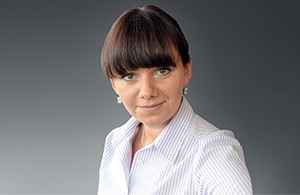

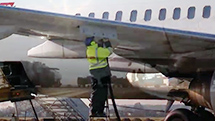
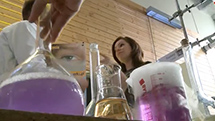
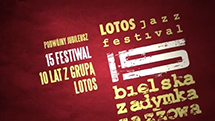
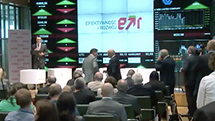
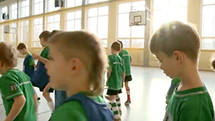



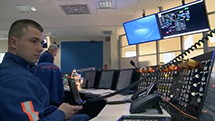


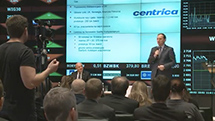
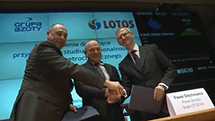
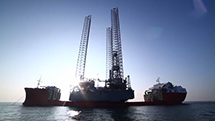
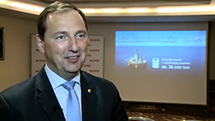
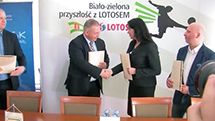
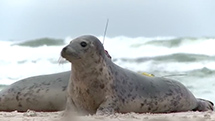
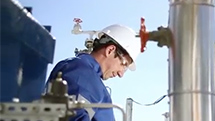
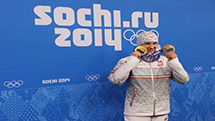
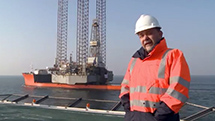
 E-mail
E-mail Facebook
Facebook Google+
Google+ Twitter
Twitter